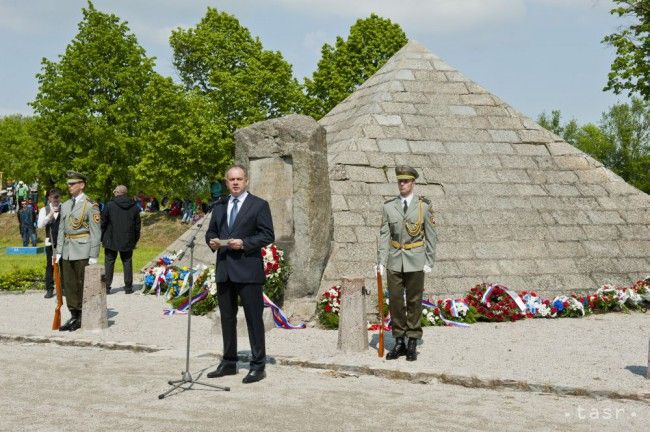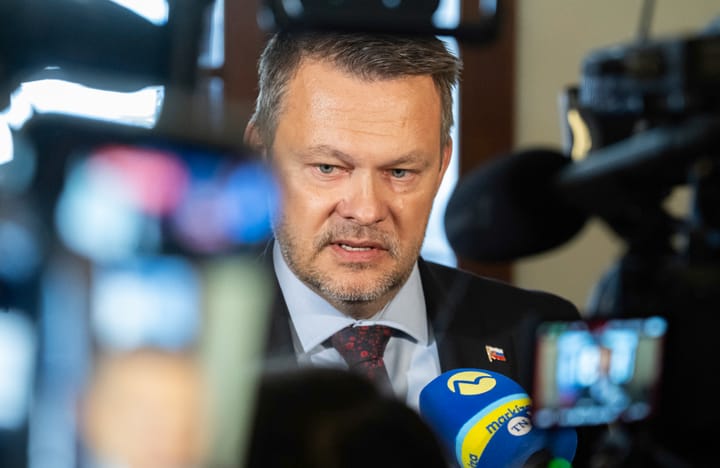President Kiska Commemorates Death of Stefanik

Ivanka pri Dunaji, May 3 (TASR) – A ceremony marking the 97th anniversary of the tragic death of General Milan Rastislav Stefanik (1880-1919) took place in Ivanka pri Dunaji (Senec district, Bratislava region) on Tuesday, with President Andrej Kiska and Defence Minister Peter Gajdos (an SNS nominee) present, TASR learnt on the same day.
The event at Stefanik’s tomb was attended by representatives of embassies, state and municipal institutions and by participants in the 26th annual patriotic walk from Samorin (Trnava region) to Ivanka pri Dunaji, which follows a route that takes in memorials to Stefanik.
The cultural programme was organised by Matica slovenska along with the regional government and schools. As many as 20 institutions and associations laid wreaths at the tomb accompanied by the Defence Ministry honour guard and its brass band.
“It’s almost 100 years since, right here, a personality of great merit left this world forever. A faithful son of his nation for which he helped gain freedom. As an astronomer, politician, diplomat, aviator, general of the French Army, organiser of Czechoslovak troops [legions] and minister of war, he travelled all continents during his missions,” said Kiska in his speech.
“Along with [Tomas Garrigue] Masaryk and [Edvard] Benes, he convinced the Western Allies that Slovak and Czech autonomy made sense. They set up a republic that contributed in a remarkable way to the development of Slovakia, our culture, education, democracy, freedom of the press as well as our ability to administer and govern,” added the president.
Kiska also noted changing views of Stefanik over the years. Right after his death, Stefanik was celebrated, and streets, squares, parks and schools were named after him. During the era of socialism, however, his statues and memorials were removed from public places, as communist officials wanted Stefanik to be erased from the memory of the nation.



